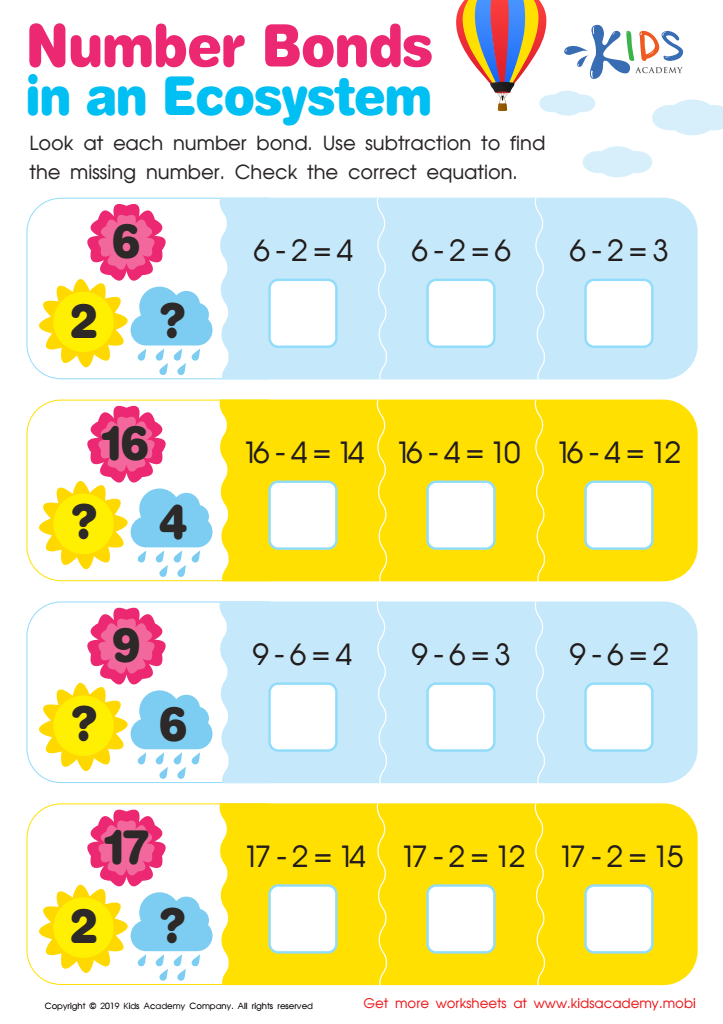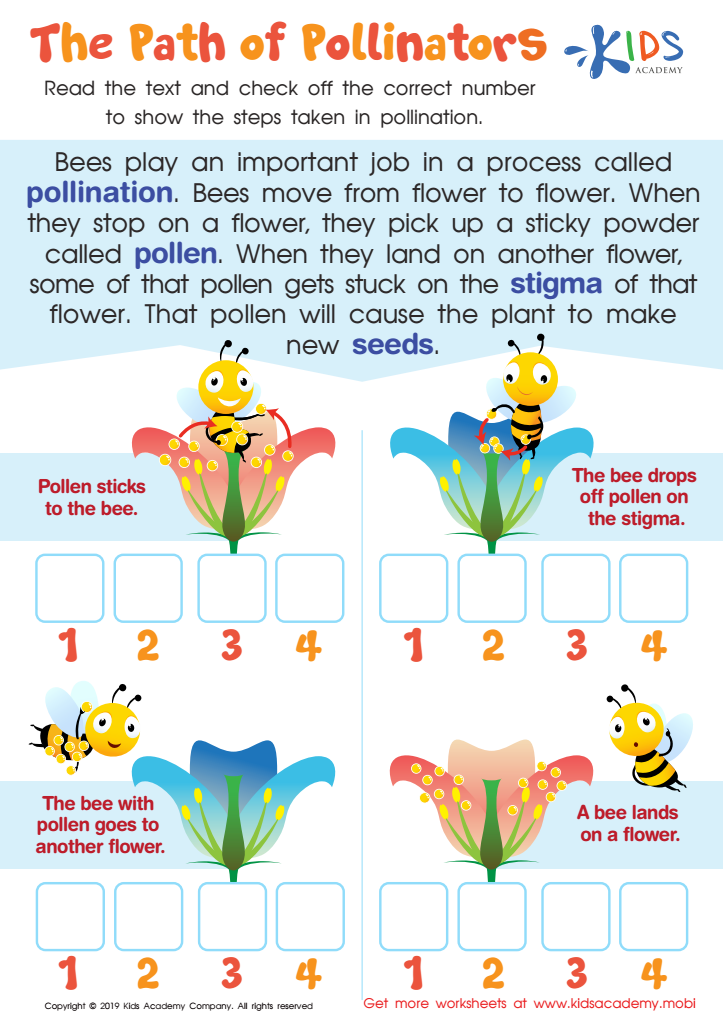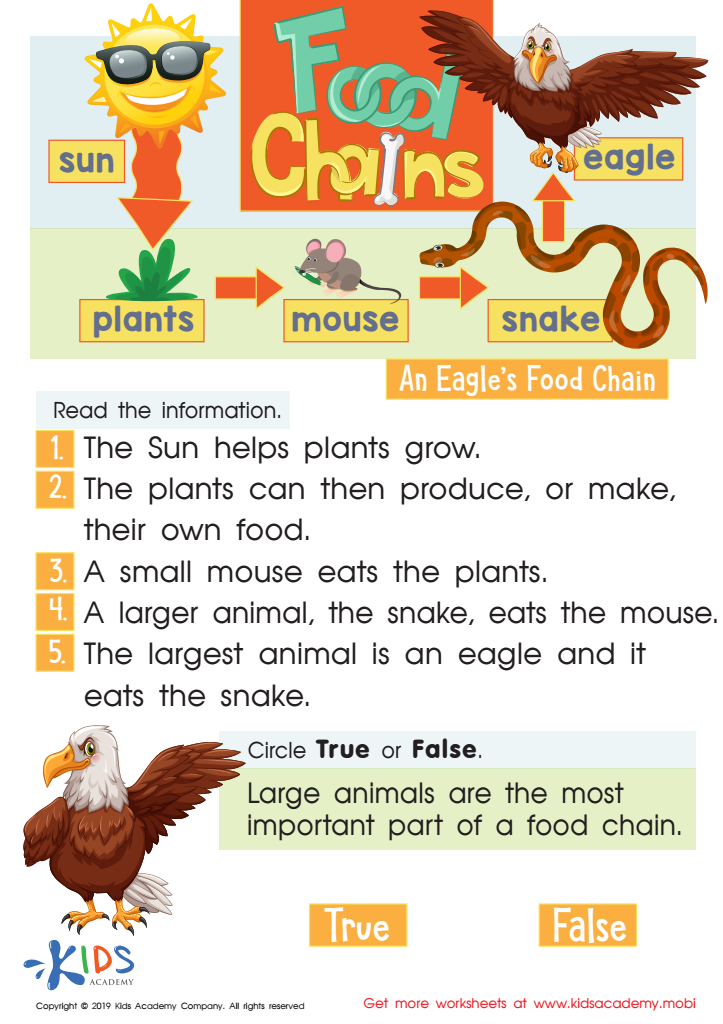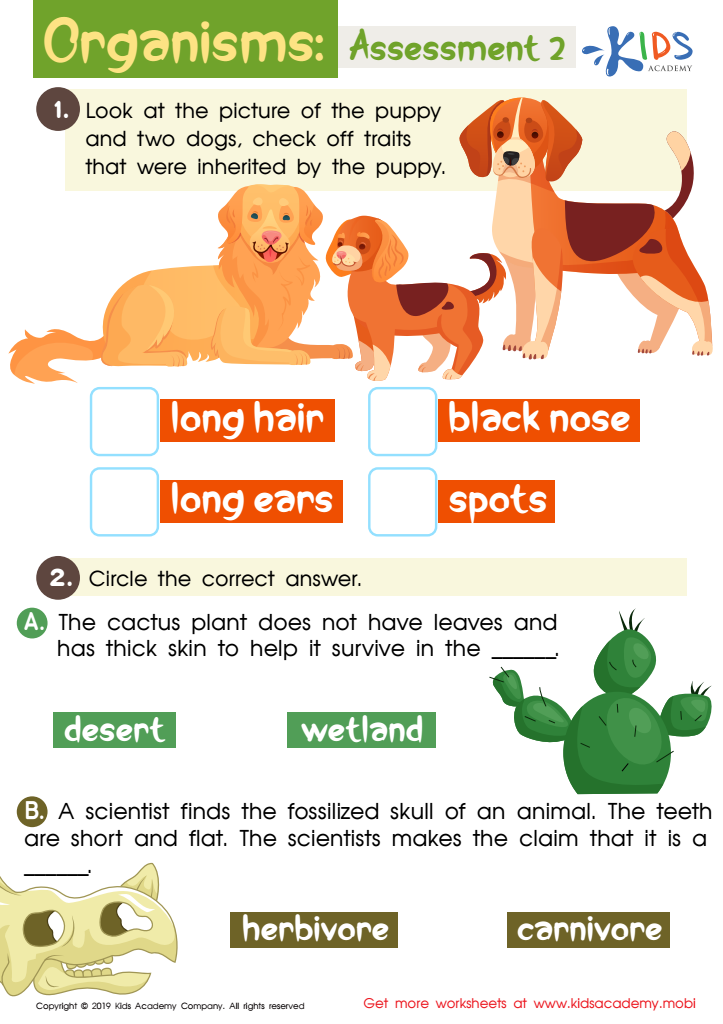Learning about ecosystems Worksheets for Ages 5-8
5 filtered results
-
From - To
Explore our engaging and educational "Learning About Ecosystems Worksheets for Ages 5-8"! Perfectly designed to spark curiosity, these worksheets introduce young learners to the fascinating world of ecosystems. Our collection covers diverse habitats, food chains, and the roles of various organisms, making complex concepts accessible and fun for kids. Interactive activities, vibrant illustrations, and thought-provoking questions ensure active comprehension and retention. These worksheets are ideal for classroom use or homeschooling, fostering environmental awareness and scientific curiosity. Start your child's ecological adventure today and watch them grow into eco-conscious explorers with Kids Academy!


Pollinator Positions Worksheet


Number Bonds in an Ecosystem Worksheet


The Path of Pollinators Worksheet


Food Chains Worksheet


Organisms: Assessment 2 Worksheet
Introducing children aged 5-8 to ecosystems is a valuable educational endeavor that benefits their cognitive and emotional development significantly. At this impressionable age, children are naturally curious and enthusiastic about exploring the world around them. Learning about ecosystems helps cultivate this innate curiosity by offering engaging hands-on activities and observations that make science come alive.
Understanding ecosystems teaches children about the interdependence of living organisms, including plants, animals, and humans. This foundational knowledge fosters an early appreciation for nature and the environment, making children more likely to develop sustainable practices and respect for biodiversity as they grow older. It encourages critical thinking and problem-solving skills as they explore how various components of an ecosystem interact and what happens when those systems are disrupted.
Moreover, studying ecosystems promotes themes of empathy and responsibility by highlighting how actions can impact the world around us. Activities like gardening or maintaining a class aquarium can give children a sense of accomplishment and direct engagement with natural processes.
For parents and teachers, facilitating this learning acts as a bridge to more complex scientific concepts, creating a strong basis for future learning. It emphasizes the importance of environmental stewardship at an early age, thereby nurturing responsible, informed citizens of tomorrow. Incorporating ecosystem education enriches a child's overall development and establishes a lifelong connection with the natural world.
 Assign to My Students
Assign to My Students





%20(1).jpg)









